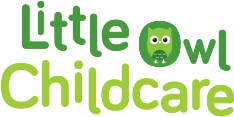“The ability to control emotional and physical impulses should be developed in the early years to help ensure children embrace learning and grow into self-regulating adults.” (Ruth Thomson)
Self-regulation is the ability to control our emotional impulses. This might be to stop doing something we shouldn’t, even if we don’t particularly want to and to then start to do something we are required to do. Being able to consistently regulate their own feelings and behaviour is a great task for a young child, the early years is where this should develop.
As adults we make self-regulating decisions daily. We stop ourselves from doing something we know we shouldn’t. We will think about the consequences of our decisions and what might happen in the future. This is a skill that young children need to learn, experience and develop.
What adults can do to support self-regulation in children:
- In both early years setting’s and the home environment adults can model good self-regulation, set positive examples, keep calm and manage their own stress.
- Have realistic expectations of young children, allow for set backs.
- Be supportive and encouraging towards children, allow them to feel cared for and understood, provide them with a voice to share thoughts and feelings.
- Giving structure and consistency will help reduce stress in children.
- Adults could discuss with children to use a scale of 1-10 to measure their emotions, this will enhance their self-awareness.
- Sometimes just simply giving children the opportunity to calm themselves and to ‘see it through’ will develop their self-regulation skills.
A self-regulating child may not always be compliant. They might be creative and strong willed in their actions. They are curious, everything is new and exciting while they develop and grow.

Recent Comments